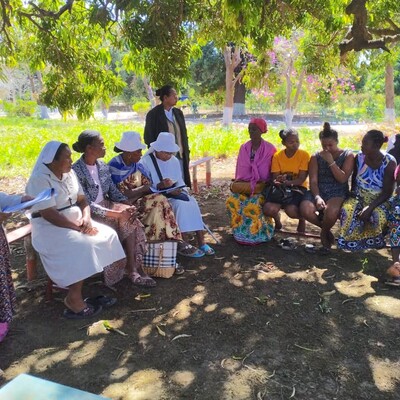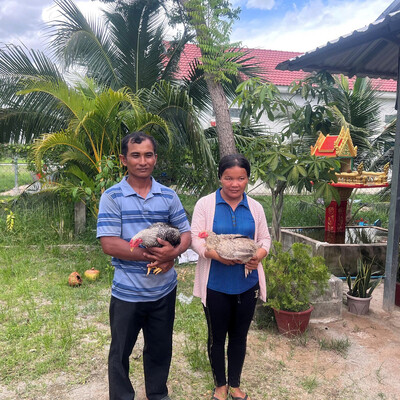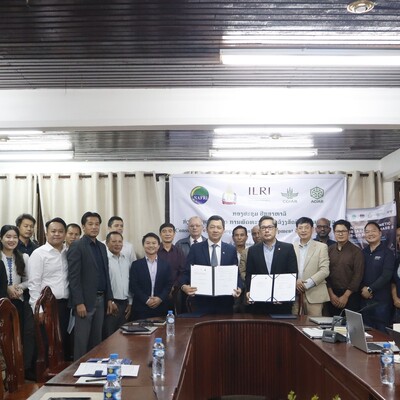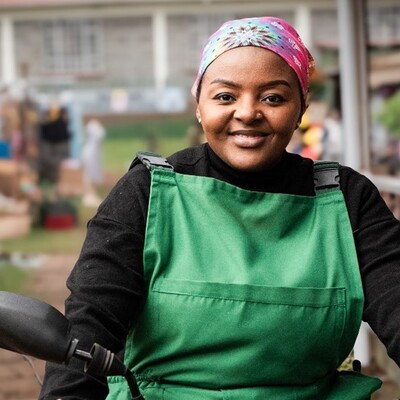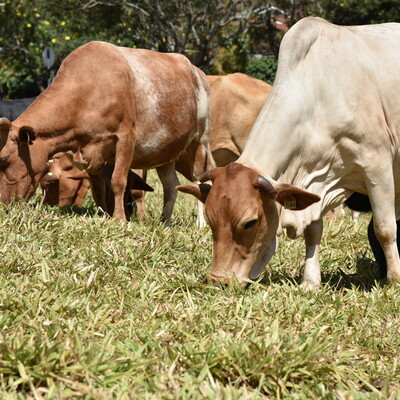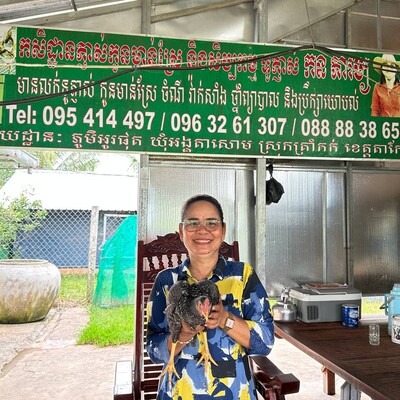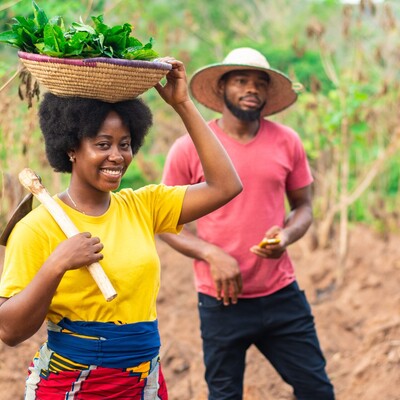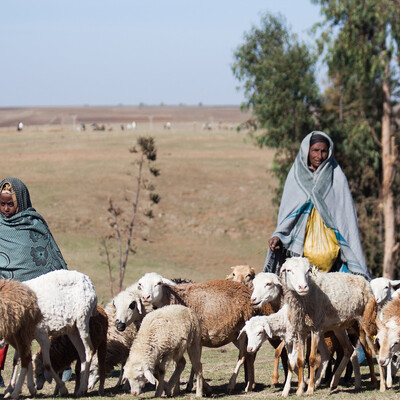
Empowering Tanzania’s women in business: Evaluating the readiness for scaling for two ILRI-designed gender empowerment tools
In Tanzania on March 2024, the scaling readiness of the Women in Business (WiB) model and the Women Empowerment in Livestock Index (WELI) was reviewed by CGIAR and stakeholders, using the Innovation Packaging and Scaling Readiness (IPSR) approach.
In a two-day workshop in Moshi, Kilimanjaro Region, livestock stakeholders from the Tanzania Livestock Research Institute (TALIRI), private chicken hatcheries, policy representatives, beneficiaries, and researchers joined researchers from the International Livestock Research Institute (ILRI), which hosted the event. The workshop assessed the readiness for scaling and use for each of the two innovations, which included identifying the challenges and enablers for each using the Scaling Calculator.
At the WiB model review workshop, Pius Mwambene, chief executive director of the Livestock Training Agency (LITA), which is implementing the Building Better Tomorrow through Livestock and Fisheries (BBT-LiFe) initiative, said the model can increase the impact of BBT-life program interventions.
'We are eager to explore synergies between this WiB model and BBT-LiFe, especially in empowering the youth and women,’ he said.
Reyna Mrema, a representative of hatchery The Poultry Centre, and one of the beneficiaries of the WiB project in Sia District, Kilimanjaro, noted that the WiB tool’s scaling approach has underscored their responsibility as vendors to engage with others in the livestock sector, offering them education and skills to enhance their businesses. She also acknowledged the support from ILRI, including training on enhancing poultry businesses and receiving 200 chicks for her business.
‘This project should reach more women who are unemployed in other regions such as Mtwara. Let us commit to scaling this tool to benefit all actors in the livestock sector,’ Mrema urged.
During the WELI tool evaluation session on day two of the workshop, Angelo Mwilawa, director for research and development in the Ministry of Livestock and Fisheries (MoLF), commended the collaboration with the national partners in implementing research innovations such as WELI, which are helping to build the capacity of the national staff. He praised the tool, saying it supports the measurement of empowerment of different actors, including smallholder farmers, from different dimensions (e.g. financial and gender norms, among other indicators) in a holistic way.
The IPSR facilitators, Aichi Kitalyi, director, Facilitating Change Tanzania (FACT) Consulting Limited, and Edwin Kangethe, from the Portfolio Performance Unit of the CGIAR System Office, guided the participants through different stages of assessing scaling readiness and using WiB and WELI.
‘WELI assesses women's empowerment in livestock. Today we are concentrating on defining its applicability within the Tanzanian context,’ explained Kangethe.
Briefs for the WiB and WELI models were presented. The WiB model includes the involvement of young female chicken vendors to address the gender-based constraints affecting rural women in accessing quality chicken seeds and extension and advisory services. On the other hand, WELI measures not only economic empowerment but also access to productive resources, gender-related advantages, barriers, and social norms.
The workshop discussions emphasized the need to build on existing enablers for the successful scaling of the WiB model. Participants noted that changing the focus of WiB from research to commercial/ business would create more opportunities for women and youth to benefit from the model and help them generate more income.
'We want to ensure that women and young people are benefiting from this model; we will review all its enablers to see how women and youth can more effectively benefit,’ noted Joseph Masimba from Sokoine University Graduates Entrepreneurs Cooperative (SUGECO).
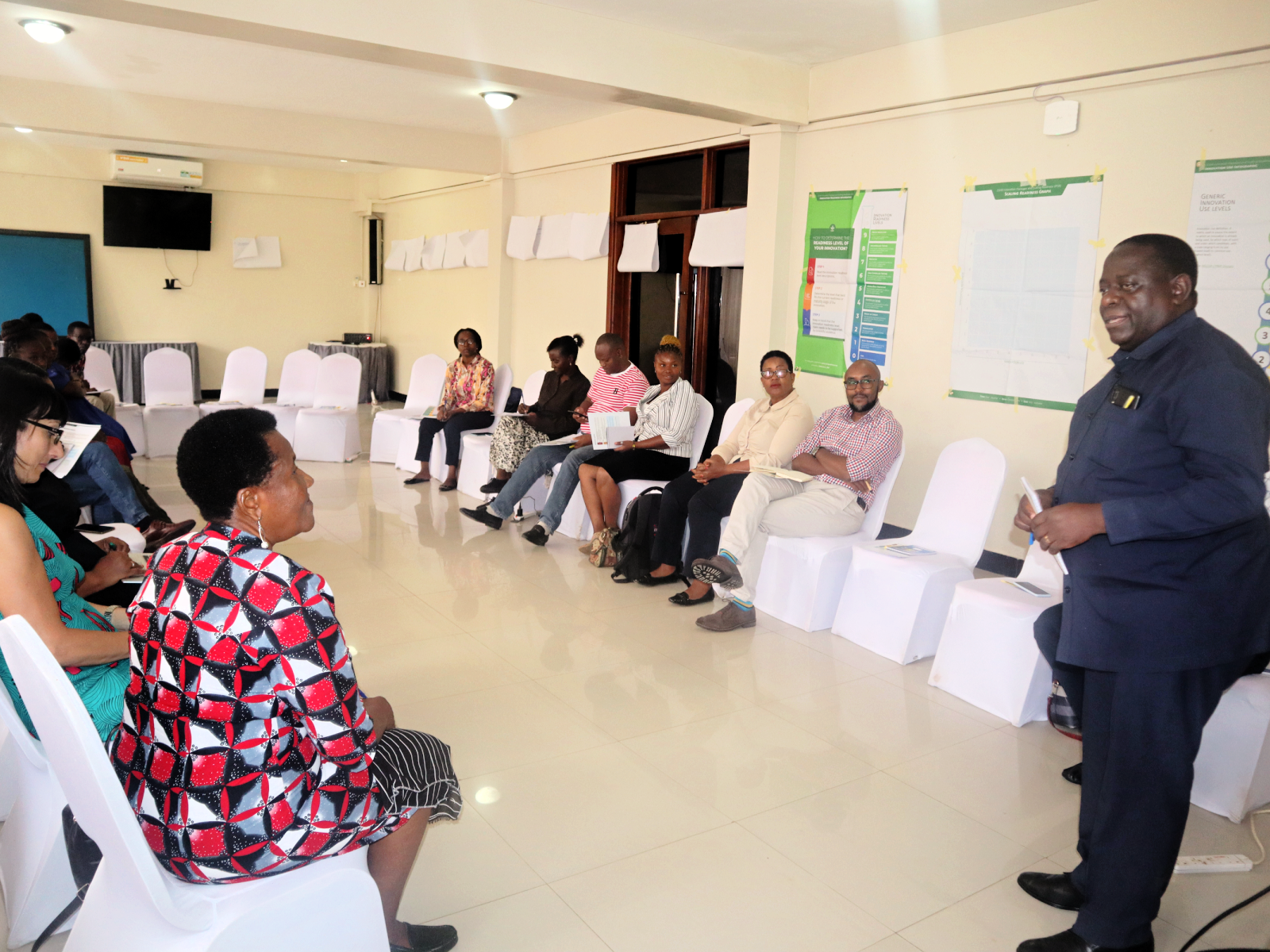
John Msinde, a lecturer from the Institute of Development Studies at the University of Dar es Salaam, said WELI was an outstanding tool. He recommended its use and promotion in academia, particularly universities, for wider scaling.
‘WELI can help the many people carrying out gender research deal with the challenge of measuring impact, especially when discussing women's empowerment, which is a very broad concept,’ he said.
Scholars and researchers often struggle to determine which measures are appropriate for assessing women's empowerment.
‘If the team manages to standardize a measure like this, it will assist researchers in gender studies and encourage more people to engage in this field,’ Msinde added.
Steven Michael, director of marketing at MoLF, expressed the government’s commitment to collaborating with private actors and other stakeholders to support the scaling of these innovations, which are in line with government priorities. He said the government acknowledges that women's empowerment is a global agenda under the Sustainable Development Goals.
‘It requires evidence-based policy decisions to support it,' he said.
Learn more about WiB, WELI and the IPSR
Innovation Packages: CGIAR's Transformative Strategy for Scaling Agricultural Solutions
Birds eye view of CGIAR’s Innovation Packages and Scaling Readiness (IPSR)
You may also like
Related Publications

Harnessing community conversations for gender-responsive engagement in livestock management in Ethiopia: a methodological reflection
- Lemma, Mamusha
- Alemu, Biruk
- Knight-Jones, Theodore J.D.
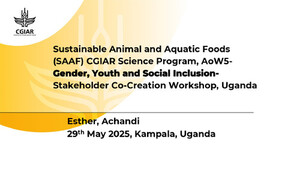
CGIAR Science Program on Sustainable Animal and Aquatic Foods : Gender, youth and social inclusion area of work
- Achandi, Esther L.

Effects of livestock related gender roles on pastoral children and their implication to RVF risk exposure
- Mutambo, Irene N.
- Bett, Bernard
- Bukachi, S.A.





